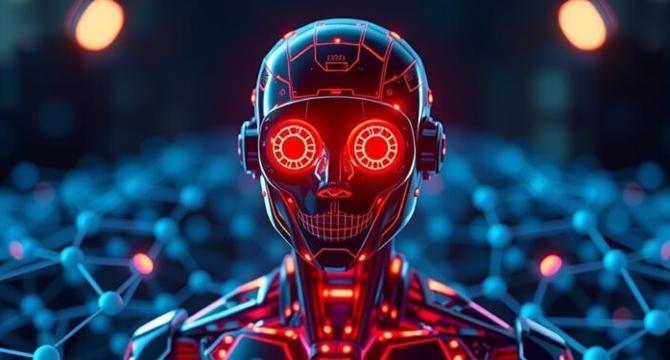Bioengineer
1w
392

Image Credit: Bioengineer
Revolutionary Autonomous AI Assistant Paves the Way for Nanostructure Innovation
- Researchers at Graz University of Technology are developing an autonomous artificial intelligence system designed to construct intricate nanostructures with remarkable precision.
- The project is being led by Oliver Hofmann at the Institute of Solid State Physics, and it aims to revolutionize the way nanostructures are built by employing self-learning AI to position individual molecules on surfaces quickly and accurately.
- Currently, nanostructures are built by manipulating molecules at extremely small scales, which is a time-consuming process that involves the use of scanning tunneling microscopes (STM).
- By automating the positioning process with AI, researchers can increase their throughput and explore more complex structures that were previously deemed too time-consuming to realize.
- The role of machine learning in crafting these nanostructures is significant. Initially, AI techniques will be utilized to formulate optimal strategies for molecule positioning.
- One of the significant challenges in this endeavor is the probabilistic nature of molecular alignment, which involves integrating conditional probabilities into the AI framework to maintain reliability even when faced with unpredictable outcomes.
- The ultimate goal of Hofmann’s team is to produce innovative nanostructures known as quantum corrals, which possess the unique capability to trap electrons and utilize their wave-like properties to induce quantum-mechanical interferences.
- This research initiative not only aims to construct more complex nanostructures but also seeks to deepen our understanding of molecular interactions at the nanoscale.
- The integration of artificial intelligence and nanotechnology could lead to groundbreaking innovations and applications with transformative impacts on various industries.
- The journey towards autonomous molecular assembly is marked by intricate challenges and high expectations, and as we delve deeper into this pioneering research, we can only imagine the myriad of applications that could emerge from the successful synthesis of artificial intelligence and nanotechnology.
Read Full Article
23 Likes
For uninterrupted reading, download the app